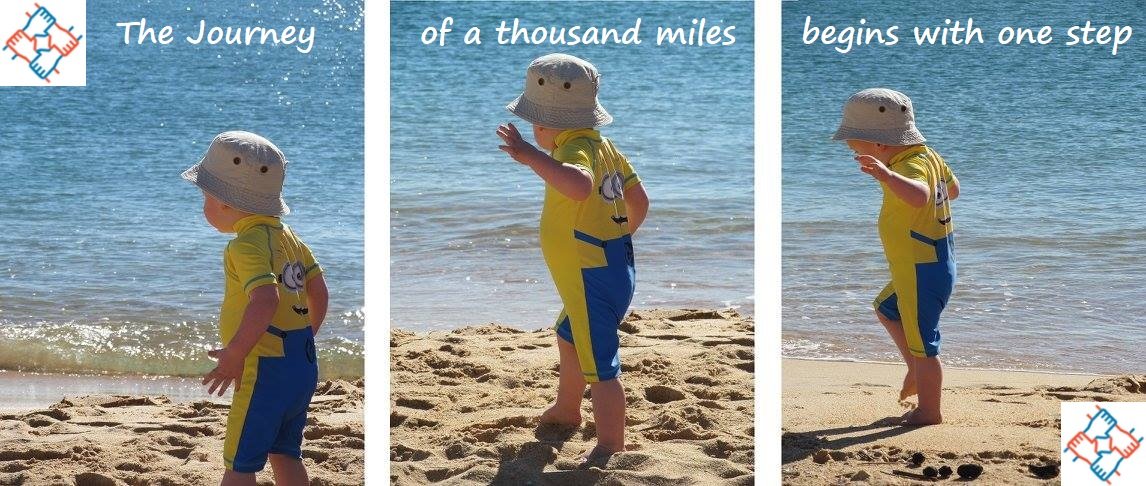One approach that has helped us survive is low demand parenting. This means
strategically reducing the number of direct demands placed on a child so they feel
more in control and less anxious. Sounds simple, right? Ha. Think again.
Parenting Plot Twist
t’s terrifying. Because everything we’ve been told says that missing school means missing out. That struggling in education means struggling in life. But that’s not the whole truth.
I know, because I’ve walked that different path myself.
HOW TO SURVIVE AND THRIVE
Written by Sam Ryan When you become a parent, you dream about the path that stretches out in front of you – a future filled with bedtime stories, unicorns and dinosaurs, snuggling under the covers on a Sunday morning with your little one, walks in the park and watching them run and play amongst the other tiny humans. What you absolutely do not imagine is that you will have to become an advocate, a lawyer, a detective, a child psychologist, an administrator and just all-round parent champion extraordinaire! Yet here you are, riding the rollercoaster of not being believed, having to overcome roadblocks and all the time helping your child move towards a future where they can succeed. You deserve a gold medal just for staying upright! But since there are no prizes for SEN parenting that are worth more than seeing your little one happy and content, here are a few tips for surviving and thriving with a smile on your face: Own Your Expertise: Who knows your child best? Well, the answer’s clear: you do. If the ‘professionals’ across the table can’t see the needs of your little one, that doesn’t invalidate your day-in, day-out experience. So, when parent-blaming creeps in, remind yourself (and them) that your PhD in Your Child is real – even if you’re the only one who gave it to you. Create Your Mantra: When you’ve heard, “Don’t worry, they’ll grow out of it,” or “have you tried implementing routine and consequences” for the thousandth time, having an internal pep talk can keep your spirits up. Maybe it’s as simple as “We’ve got this!” or “Well, that’s their opinion” or even “WTA… who on earth do you think you are! Shut the front door, you know nothing. I could wipe the floor with you on what I know about parenting a SEN child”. Silly as it sounds, it helps shut down the negative self-talk that creeps in after being dismissed. Find Your Tribe: There’s something truly magical about connecting with other SEN parents who get it. You can vent, share ideas, and basically become each other’s cheerleaders. Sometimes, a single text saying “OMG, that meeting was brutal” to a friend who understands (or posting in the amazing SEN Parent Support Group!) can keep you going until the next round. Collect the Evidence: Channel your inner detective: keep a diary, take videos of typical (and not-so-typical) moments, gather school reports, use the parent resources we have in group. It’s frustrating to have to “prove” your child’s needs but having that hard evidence can be your superpower when you go up against the doubters. Humour as Self-Care: It might sound bananas, but laughing at the absurdities can help. Let’s face it, hearing “Have you tried giving them more structure?” for the tenth time from a new professional can just about tip us over the edge. Find your favourite outlet –hilarious cat, dog or goat videos, an episode of Friends / Big Bang Theory or simply imagining the SENCO / teacher / Head / caseworker wearing a tankini and riding a T-Rex at the next meeting might just lighten your mood a little. A good chuckle is the best stress-buster. Look After Your Own Well-Being: None of us can advocate from an empty fuel tank. Whether it’s a simple walk in the park, a warm bath, or a late-night chocolate indulgence, schedule the time you need to recharge – no guilt allowed. Self-care is basically your armour. Remember the Big Picture: One meeting, or even one set of professionals, doesn’t define your child’s future. Yes, it can be draining to explain the same story to multiple people, but each time you’re advocating, you’re teaching others about your child’s uniqueness – and every step is pushing towards the support they deserve. Above all, be kind to yourself. You’re doing the heavy lifting of helping your child navigate a world that doesn’t always make space for them. And hey, you’re absolutely killing it, even on days that feel like everything’s stuck in a loop. You know, that unstoppable love you’ve got for your child? It’s worth more than any pile of expert opinions. Keep going, keep laughing, and know that there’s a whole tribe of parents standing shoulder-to-shoulder with you, cheering you and your child on—whatever obstacles pop up. You’ve got this.
All I want for Christmas is an EHCP
Dear Santa, I hope you, Mrs. Claus, and the elves are jingling all the way into the festive season. I know the old tune says “All I want for Christmas is my two front teeth,” but I am quite OK on that front. What I’m really hoping for this year is something a bit moremore official, more life-changing, and honestly, way more boring to unwrap: an EHCP. Don’t worry, it’ll fit nicely down the chimney – just fold it a few times and watch out for the soot. You see, I’ve been a very good girl. OK, there may be moments when my patience wore a little thin but I did try my best to manage that with stress-induced chocolate binges instead of losing my cool at those around me. You see, I’ve supported my sonthrough his toughest times – moments that felt like untangling a string of mile-long fairy lights when it’s time to put up the tree. I’ve negotiated the war zone between father and son, soothed tensions, delivered endless cups of tea, and paid out of pocket for a SALT report that’s not the seasoning kind. I’ve faced our Local Authority, who have been reminiscent of Scrooge, and all I want as a reward for trudging through these bureaucratic blizzards is one not-so-simple document: a solid EHCP. Seriously, Santa, I’ve been fighting to meet my son’s needs for months. It’s felt like trying to build a tower out of Christmas baubles – each time I thought I had a solidbase, they would wobble and topple and I would start again. School placements, medical considerations, constant demands (and I do mean constant!) from my boy – I’ve handled it all. A medical needs school became my battleground victory. I’ve done everything short of donning a red suit and hijacking your sleigh to make my kid’s world a better place. If it wouldn’t be too much bother, Santa, while you’re making your rounds, could you also help out a few thousand other families who are in the same sleigh-ride through red tape? Maybe drop a handful of EHCPs down their chimneys, too? Throw in some reasonable adjustments, a scoop of speech and language therapy appointments, a dash of occupational therapy sessions, and maybe top it all off with a generous sprinkling of CAMHS appointments. Trust me, Santa, these requests aren’t as flashy as Playstations and train sets, but they make a world of difference (but the kids will still want the Playstations and train sets so drop those off too). So please, Santa, show those Scrooge-like LAs that the spirit of Christmas is all about giving—especially to those who’ve earned their place on the ‘Nice, Desperately Overstretched, and Seriously Sleep-Deprived’ list. All I want for Christmas isn’t my two front teeth; I’m fine in the dental department. All I want is an EHCP. And maybe one or two (thousand) more for everyone else who’s fighting the same uphill battle. Yours hopefully, A Very Good (and Slightly Exhausted) Girl This Year
WEATHERING THE STORM
As I look outside my window this morning, the wind is howling, creating chaos beyond the safety of my home. My garden is strewn with leaves and branches that have fallen from the large trees that surround us, some of which shocked me as they struck our windows with a frightening bang. But, if I look beyond the storm I see blue sky, the sun is shining, and the rain-strewn leaves are glistening as the sunshine bounces off them. There is such beauty in the natural storm that rages outside while I feel safely tucked away in my safe space. It has made me think about my son. Since he hit burnout, his behaviour presentations have been destructive, aggressive, defiant. At times, he has appeared unmoved by the hurtful words he has used or the violence he used against us. Our life has been turned upside down since they day he left school for the last time in March and has been unable to return since. A storm has raged inside him. He is resistant to leaving the safe confines of our house as, beyond the front door, danger lies. He cannot control or predict what he will experience in the wider scary world, but here at home it is predictable, comfortable and safe. Beyond the stormy behaviours we see is my sunshine boy . My smart, funny, talented and amazing boy shines behind the defiance and outwardly resistant behaviours. That’s what keeps me going every day. He is my purpose. The fight for support, recognition, EHCP and acceptance of his needs is leaving stormy debris through our life. Our mental health is impacted, anxiety is high, stress is just a part of every day now, but I still see that ray of sunshine trying to break through and reach us. We will weather this storm. We will get our son what he needs and deserves. We will continue to make him feel loved, safe and supported. One day, the storm will pass, and we will again venture outside of this safe space, clear the debris left behind and walk through the calm stillness that lies beyond. Out of our storm has come my other purpose: to work with Andrea and support other parents struggling to navigate a system that works against us, seemingly trying to blow us down with the force of their bureaucracy. If this resonates with you, we are here for you. If you are worried about the return to school, need support in what steps you need to take next or just want to share your own journey with like-minded people, we are here and we are your safe space .
THE FIGHT FOR THE SENBETWEENERS
Here’s the thing about being the parent of a SENbetweener: it’s a mix of heart-swelling pride and gut-wrenching worry. One moment, you’re marvelling at your child’s ability to outthink adults. The next, you’re trying to convince him that brushing his teeth isn’t an elaborate scheme to ruin his day.
THE IMPACT ON YOU
We are SEN Parent Support Group, and while we help you advocate fiercely for your children, we are also here to support you. Today, I want to acknowledge the toll this relentless battle for support can take on parents and carers. If you’re constantly in “battle mode”—fighting for assessments, diagnoses, SEN support, EHCPs, mediation, tribunals, and more—while also supporting your child, it can wear you down, physically and mentally. For some of us, this exhaustion creeps up gradually; for others, it crashes in unexpectedly. One day, you might just feel like there’s nothing left. I’ve been there too. I’ve sat, frozen in place, unable to think or process, completely overwhelmed. I’ve found myself rocking back and forth, trying to soothe the intense stress that had built up after countless days of adrenaline-fueled struggle. Between supporting my son through school trauma and fighting on multiple fronts to get him the help he needed, I hit my limit. I froze.I felt lost.I thought I had nothing more to give. Some parents in this constant fight live in a heightened state of stress for so long that it leads to something deeper: post-traumatic stress disorder. Yes, it’s real, and it needs to be recognised and treated seriously. Right now, as the stress of returning to school looms large and the pressure of the new penalty framework weighs on many of you, it’s more important than ever to acknowledge this struggle. The cost of this fight is immense, and if you’re feeling the pain of it—you are seen, and you are heard. As SEN parents, we will always fight for our children, but we must also care for ourselves. Without us, who will be there to advocate for them? So please, take a moment—whether it’s one minute or ten—to think about you. What can you do today to take care of yourself? Call a friend. Set up a coffee date. Take a bath. Book that long-overdue hair appointment. Go for a walk. Read that book. Whatever it is, find a way to put yourself first, even for a short while. You matter. You deserve time for yourself. The long-term effects of burnout and PTSD are real. If you recognize the signs in yourself—whether it’s anxiety, feeling overwhelmed, or just not feeling like “you”—reach out to your GP. Don’t ignore it. You deserve help, too. Symptoms of PTSD (taken from Mind): · Reliving aspects of what happened (flashbacks, intrusive thoughts, nightmares, intense distress, physical sensation such as pain, sweating, nausea or trembling) · Alertness or feeling on edge (panic attacks, easily upset or angered, hypervigilance, sleep disturbances, irritability, difficulty concentrating, other symptoms of anxiety) · Avoidance of difficult emotions (Keeping busy, memory gaps, emotionally numb, detachment, unable to express affection, using substances to self-sooth) · Difficult beliefs or feelings (difficulties with trust, overwhelming feelings of anger, sadness, guilt or shame, blaming yourself, feeling unsafe)
YOU ARE IMPORTANT TOO
As the school year draws to an end, we want to recognise YOU and everything YOU do to support your children. You may be breathing a sigh of relief at the upcoming respite from thinking about school. You may be dreading the school holidays – your child has become weary at school and the repercussions of that are showing in their behaviour at home. You may not know how to feel because, as a result of the battles you have been fighting, you are faced with your own trauma response. AT SEN PSG, we are passionate about helping other parents to be empowered, to know their rights, to use the law and regulations to get what their children deserve. However, we do know that the fight can have a major impact on our own mental health. We have been there. Some of us are still there. We feel you! With a SEN child, it is not always as easy as saying ‘take some time for you’. If you have a child struggling with separation anxiety, at home with you unable to attend school or you are their only safe adult and cannot leave them, these words can seem hollow. You may think that this is impossible to do. So, I wanted to share some thoughts today on some little things you can do that may help YOU. – Breathing exercises can help to calm a frazzled nervous system. You can do this sat on the toilet when you get just a few minutes to yourself, as you lay in bed at night with thoughts whizzing around your mind or at the start of the day before the kids are up. Find a quiet space and just spend 5 minutes. Close your eyes, breathe in through your nose and count to 3. Breathe out through your mouth, counting to 6. As you breathe, focus your attention on the sensations you are feeling. If thoughts invade your mind, recognise it and move it to one side and focus again on the breathing and the sensations. Allow your mind to still. Try to spend 5-10 minutes just breathing when you get the chance. – Journalling can be a fantastic way to get the words out of your mind and release your thoughts and feelings. This could be a physical book you keep on your bedside table and write a little bit at bedtime. It could be done on your phone and you just write little bits throughout the day. You could even use a text to speech app. It can be as much or as little as you want to say. If you struggle with journalling, just record what was difficult, what went well and what are you grateful for today. – Be kind to yourself. This journey, for some of us is creating a genuine trauma response. That is some people’s reality. It could be that the admin, the organisation, having to assert yourself may trigger your own SEN. It could be that the injustice of it all creates a fire inside you that impacts your mental health. It could be that your child is distressed, and you absorb their pain every day. I hear many parents apologising for struggling. Never apologise for this. This battle can be exceptionally hard and it challenges us in so many ways. Never feel bad for struggling because it just shouldn’t be this hard. – Ask for help. We were never meant to parent alone. Remember the phrase ‘it takes a community to raise a child’. We are part of your community.
The Journey of SEN Parenting: Resilience and Strength
To every SEN parent and carer out there: today is a reminder of the incredible resilience and strength you embody each and every day. Today, let’s celebrate the strength, love, and resilience it takes to walk this path. Every day, you’re not just a parent – you’re an advocate, a teacher, a friend and a source of endless patience. You are your child’s north star. You are the lighthouse that stands tall and shines bright for them, guiding them through the storm to safety, peace and calm. The challenges may be unique, but so are the victories. Remember, it’s okay to acknowledge the tough moments while embracing the incredible progress made, no matter how small it may seem. When you feel it is too much, that you can’t keep going or that you are alone on this arduous journey, let SEN Parent Support Group be that lighthouse for you. We know that every challenge can feel like climbing a mountain, whether it’s navigating appointments, advocating for the right support, or managing the daily ups and downs of your child’s needs. But every small step forward is a testament to your commitment. The progress may seem slow, but it’s progress nonetheless – and every victory, no matter how small, is a reflection of your unwavering determination. Let’s not forget the personal sacrifices you make, the endless research you do, the compromises you make, and the sleepless nights you endure. Yet, despite it all, you rise, time and time again, stronger than before. You are a champion for your child, an advocate for their needs, and a constant source of love and support. Your work may not always be visible to the world, but to your child, it’s everything. It’s okay to feel tired. It’s okay to have days where it all feels like too much. What matters is that you keep going, no matter how tough the journey becomes. Keep putting one foot in front of the other. Know that you are not alone, and there’s a community of parents here who understand, who are cheering you on, and who are walking this journey with you. Take a moment today to acknowledge just how far you’ve come. Whether it’s a milestone reached, a new strategy learned, or simply making it through another day, it’s all progress – and it’s all because of you. You are doing an incredible job, and your love, patience, and tenacity are building a brighter, more inclusive future, not just for your child but for every family navigating the SEN world. Keep going. You are stronger than you know, and your child will thrive because of you. Together, we will continue to rise and create a better tomorrow. Written with love for @everyone on this journey
IT’S A MARATHON, NOT A SPRINT
Whether you are trying to get that long awaited assessment for diagnosis, you are seeking mental health support for your CYP or you are fighting for that elusive EHCP, you may feel that you are being blocked at every turn. How many times have you thought ‘It should not be this hard!’? You are absolutely right and it’s the awful reality many of us are facing. To get our child their basic right to suitable health care and education really shouldn’t be this hard. Sometimes it can feel hopeless. I have been there myself, believing that there was no way out of the situation we are in. We are fighting in every direction to get support: school, the LA, our GP, social care … We are still on that path and have a long way to go, but I have realised that it is a marathon and not a sprint so am trying to take the pressure of myself and celebrate each small step. So, my advice today is to conserve your energy, celebrate each small step forward, and think of one step at a time. If you think about everything that needs to be done, it feels overwhelming. If you think about just the very next step (e.g. speaking to GP for anxiety, writing to SENCO to request reasonable adjustments, parent views for EHCP ….), it may just seem manageable. Be kind to yourself along the way. We didn’t go into parenting thinking we would have to fight this hard. The dreams we had for our families and our children can seem so far away from our reality. We can feel like we are failing when the truth is we are being failed. Step back, pat yourself on the back for what you HAVE DONE and stop focussing on what is still to do. When I started creating our quick guides, it was exactly for this reason that it all felt so overwhelming. My simple brain wanted to break it into bitesize steps. Have a look through our quick guides that are summarised in our flip book https://www.facebook.com/share/p/pNYa6fUNnw8uZJ6b/ Think of this now as a marathon. You need to pace yourself. Pick which battles you want to fight (there will be plenty along the way), Keep your eye on the end goal, but use your energy for the very next step you need to take, and, if it all feels overwhelming, come into group and ask for support. WE’VE GOT YOU











